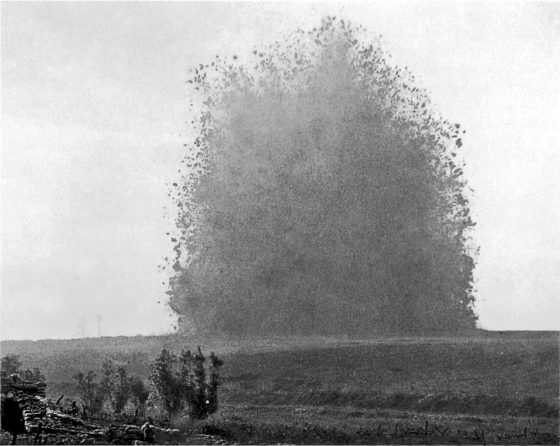
“Only about a 30 per cent of all fatalities occurred in combat.”
By Dr. Bernard Wilkin
IN OUR UPCOMING book, Fighting the British, my co-author and I calculated that approximately 45 per cent of all the soldiers who fought in the French army during the Napoleonic Wars never returned home. Yet, only a fraction of the fallen actually died on the battlefield. Thanks to regimental registers, we have a chance to explore the various unexpected ways Bonaparte’s fighting men lost their lives in wartime between the years 1799 and 1815. Here are the five most common causes of death.

“I walked too much.”
According to primary sources, 40 per cent of soldiers who perished during the Napoleonic Wars died of illness. Not surprising, considering how tough life in the French army was in the early 19th century. Soldiers typically walked hundreds of miles in a single campaign. In 1812, some marched from Madrid to Moscow. Far from toughening up the fighting men, the physical punishment of campaigning wore both veterans and recruits down. While it’s been said that an army marches on its stomach, food in the Grande Armée was often rotten and the water equally foul. As a result, the bodies of many soldiers simply gave out. Moreover, the immune systems of French troops, weakened by months on the road with poor rations, were no match for the various foreign viruses and bacteria encountered in distant lands. Army surgeons were of little help. Medical units were poorly equipped and largely clueless about treating illness.

“All’s fair in love and war.”
Sexual diseases also took their toll on Napoleon’s armies. Prostitutes, who trailed columns like a pestilence, were both common and cheap. Most were carriers of syphilis. Entire regiments might become exposed after fraternizing with just a handful of camp followers. In fact, a mass grave of French soldiers unearthed in Lithuania revealed that a third of all the corpses carried traces of an array of STDs.

“I forgot my long underwear.”
Exposure to the elements was another major killer in Napoleonic armies. Soldiers in the field were often ill-equipped to face the harsh elements. The 30-below-zero temperatures encountered during the Russian campaign famously decimated the Grande Armée in 1812. During the fighting in Egypt and Spain, heat exhaustion, dehydration and even sun stroke took a deadly toll.

sun stroke and frostbite, he could expect to die in the thick of combat (or perhaps in a field hospital hours later.) (Image source: WikiCommons)
“I beg your pardon, but your bayonet is stuck in my belly.”
Amazingly, only about a 30 per cent of all Napoleonic War fatalities in the French army died in combat. Although battles of the period could be appallingly bloody — Leipzig, Borodino or Waterloo all saw tens of thousands killed — not all encounters were the wholesale slaughters we imagine. Smaller clashes might kill only a few hundred. But while musket balls, grape shot and sabre slashes could be lethal enough, but even superficial wounds could be fatal. Field hospitals were notoriously unhygienic and without antibiotics common infections were deadly.

others simply fled.
(Image source: WikiCommons)
“Where am I?”
Surprisingly, nearly a third of all men are reported in the army registers as having simply ‘disappeared.’ This designation is the most puzzling for historians studying casualties. Yet there are several possible explanations. Scores of soldiers were captured or killed in battle. A lack of witnesses made it impossible to register the missing as either POWs or casualties. During the Grande Armée’s retreat from Russia, hundreds (perhaps thousands) of soldiers simply vanished in the snow; the chaos of the withdrawal made it impossible to record their fate. On the other hand, unknown numbers of the ‘disappeared’ were simply deserters who melted away from the ranks to return to their homes and farms or build new lives for themselves.
 Bernard Wilkin is a researcher at the State Archives of Belgium and specializes in the history of the French army and the French people at war. René Wilkin, the father of Bernard, studied and taught history in the city of Liège where he was born. He is now retired but continues to work on Napoleonic history from a French perspective. Bernard and René are the authors of Fighting the British from Pen and Sword Books.
Bernard Wilkin is a researcher at the State Archives of Belgium and specializes in the history of the French army and the French people at war. René Wilkin, the father of Bernard, studied and taught history in the city of Liège where he was born. He is now retired but continues to work on Napoleonic history from a French perspective. Bernard and René are the authors of Fighting the British from Pen and Sword Books.
(Originally published on Jan. 14, 2018)










2 thoughts on “Alternate Endings — Five Leading Causes of Death for Soldiers in Napoleon’s Army”